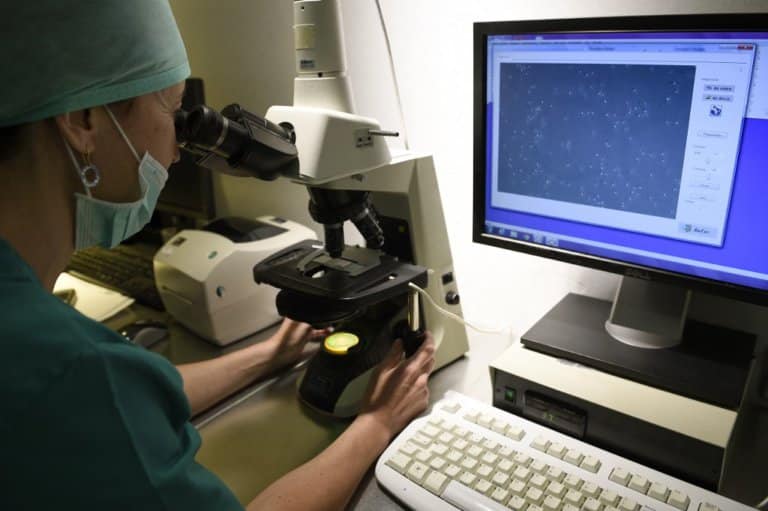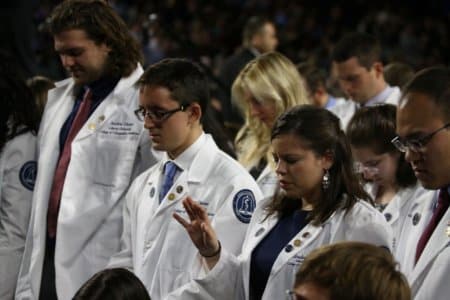
A fertility specialist, or also known as a reproductive endocrinologist, is a medical professional who specialises in diagnosing and treating fertility problems.
They help couples increase their chances of having a baby.
They also treat conditions associated with both male and female infertility such as polycystic ovarian syndrome (PCOS), endometriosis and abnormal sperm production.
As science and technology continue to advance, so does the study of reproductive science.
Over the last four and a half decades, more than nine million babies have been born due to IUI (intrauterine insemination), IVF (in vitro fertilisation), egg freezing and other assisted reproductive technology.
“Some significant questions about the human body and public health are directly related to fertility medicine,” says Dr. Eve C. Feinberg, associate professor of obstetrics and gynaecology and director of the reproductive endocrinology and infertility fellowship program at Northwestern University’s Feinberg School of Medicine.
Considering fertility specialist as a career? Here’s all you need to know from med school requirements to what to expect on the job:
Why be a fertility specialist?

The study of reproductive science has greatly evolved with the advancement of technology. Source: Vanderlei Almeida/AFP
With more advanced reproductive technology, couples now have more alternatives to natural methods of conceiving a baby. This means that work is abundant in the reproductive medicine specialty.
According to a report by Ibis World, there has been a 4.1% increase in employability in fertility clinics in the US between 2017 and 2022. Fertility specialists bridge solutions to individuals or couples struggling with infertility or hoping to extend their timeline for bringing children into the world.
“You have some of the most interesting medical problems that are hormonally related, and you have some of the most complex and advanced surgeries, and then on top of that you have a field that is growing and expanding so much,” says Dr. Gary Frishman, clinical professor of obstetrics and gynaecology at Brown University’s Warren Alpert Medical School.
In light of the US Supreme Court’s ruling overturning the Roe vs. Wade decision, fertility clinics have seen an increase in sterilisation as well. Frishman shared that fertility specialists “take care of patients during the most vulnerable part of their lives.”
Qualifications needed to be a fertility specialist
Reproductive medicine is an interdisciplinary field. Hence, there are many types of classes an aspiring fertility doctor should consider taking prior to starting residency and fellowship training, during college and medical school. Subjects worth studying in pre-med or medical school years include biology, genetics and psychiatry or psychology. It is also important for you to aim for high grades as residency typically requires impeccable academic credentials.
Students should also be mindful of more implicit admission requirements – such as GPAs, MCAT (Medical College Admissions Test) scores, clinical experience and research projects.
It takes approximately 12 years of postsecondary education to become a fertility specialist. Once you’ve completed four years of medical school to earn an MD (doctor of medicine) degree, future fertility specialists must then meet these requirements:
- Four years of obstetrics and gynaecology residency. The residency will include specialised observation and supervised work in gynaecology, infertility medicine, urology, endocrinology, and andrology.
- Three years of reproductive endocrinology and infertility fellowship.
- At least two years of practice after fellowship before taking the board examinations.
Future reproductive doctors need to seek national board certification — CREI (Certification in Reproductive Endocrinology and Infertility — from the American Board of Obstetrics and Gynecology as well as a state medical licensure. Since 1987, all board-certified fertility doctors have been required to become recertified every year. In addition to completing additional annual training, they must also pass a written exam every six years.
And as technology continues to improve, future fertility doctors also need to be curious and innovative. They should also be able to hold a safe space for their patients while being good listeners.
Looking to venture into the field of cosmetic surgery? Read here to find out more about what it takes to become one.










